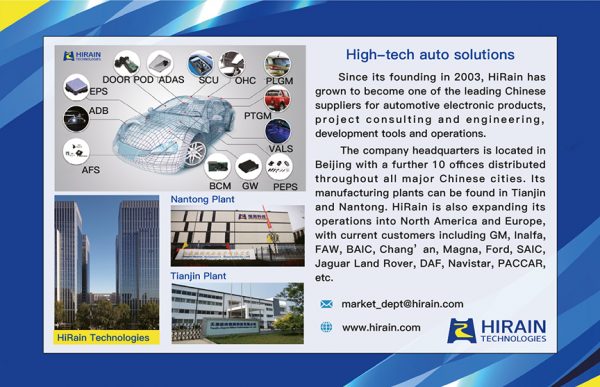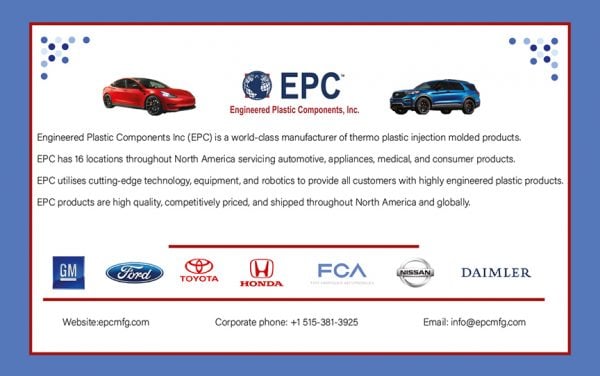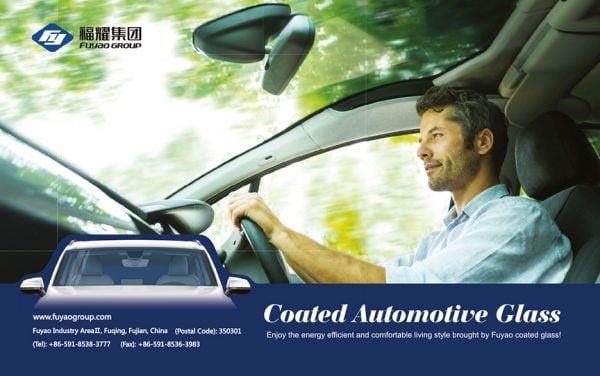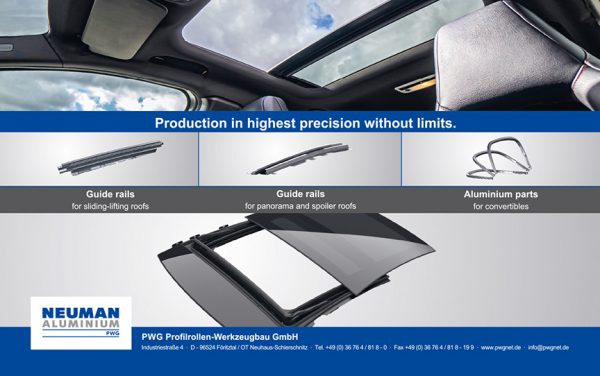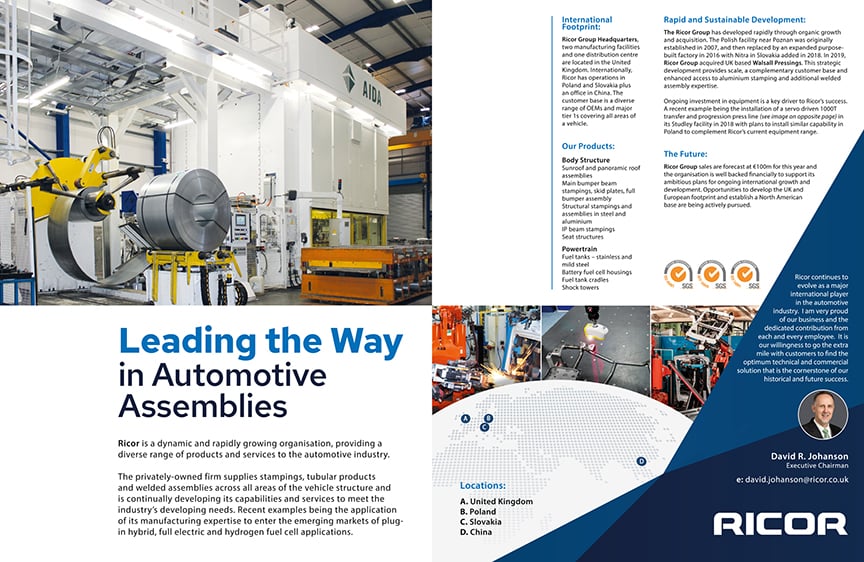Just imagine sitting in the back seat of your car after a long day at work. No-one is driving the car – it drives itself. Its electric motor makes hardly any noise. You tilt your head back and see a retractable glass roof.
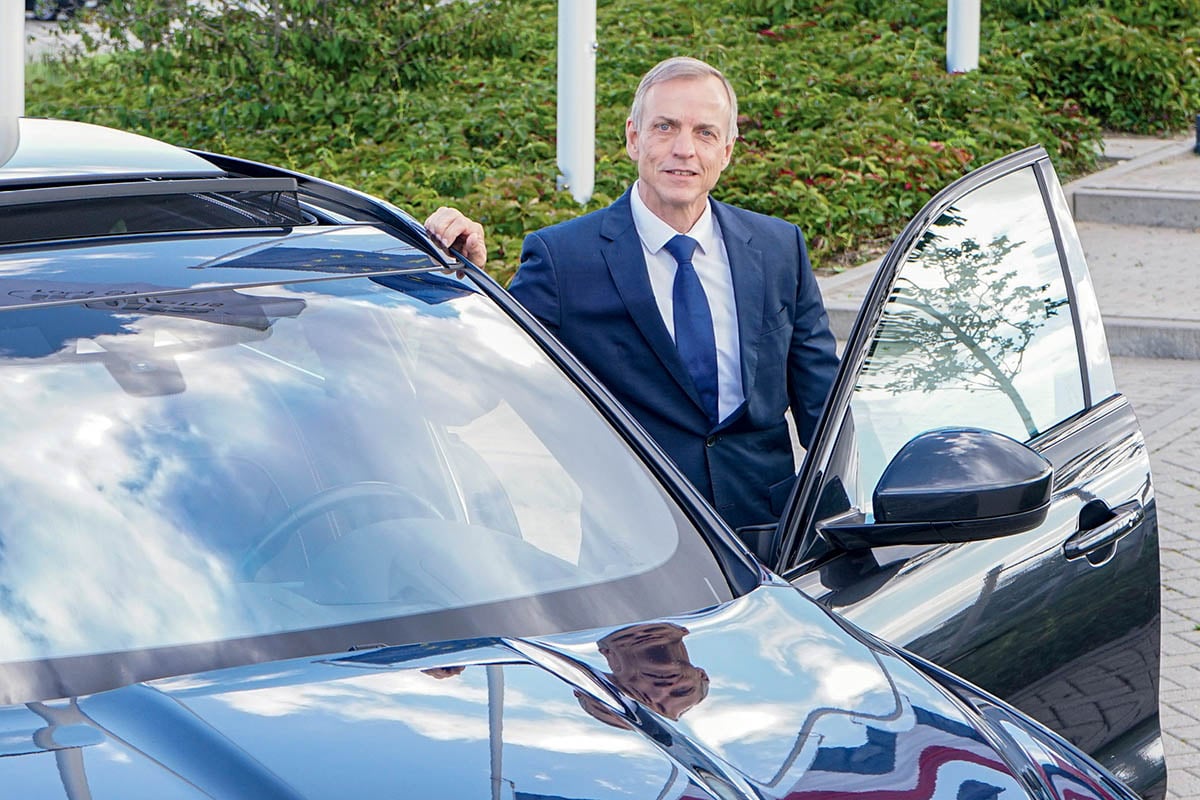
Throughout the day, solar cells built into the roof have helped charge the car’s battery and, during the ride home, the roof’s electronic display function allows you to project and manipulate your mobile apps on the glass.
After you arrange your schedule for the following day, check your emails and put on some music, you can finally relax. You retract the roof and enjoy the breeze on your face until the car delivers you safely home.
This might be the future as imagined by Jörg Buchheim, President and CEO of Inalfa Roof Systems – a company based in the Netherlands that supplies sunroofs to hundreds of car and truck manufacturers.
Since taking up his post in 2016, Jörg has sought to take Inalfa’s expertise beyond the simple mechanics that go into designing an ordinary sunroof and become a leader in innovation that can keep up with the fast-moving technological developments that are constantly taking place elsewhere in the automotive industry.
“Our industry is incredibly dynamic, with new designs and new generations of technology coming up every four years. This rate of change requires us to continuously improve our technology in terms of comfort, safety and efficiency,” he says.
“Moreover, changes within the industry are driven by geography, class differences and brand influences. In order to be a leading contributor to this dynamic value chain, Inalfa must be creative and innovative, and always a little bit better in cost efficiency than our competitors.”
Cutting-edge roofs
To guide Jörg and his team towards this goal, Inalfa has adopted the slogan ‘Powered by spirit, driven by innovation’. Spirit refers to the teamwork of thousands of employees spread throughout facilities in places as diverse as the Netherlands, Slovakia, Poland, the US, Mexico, South Korea and China.
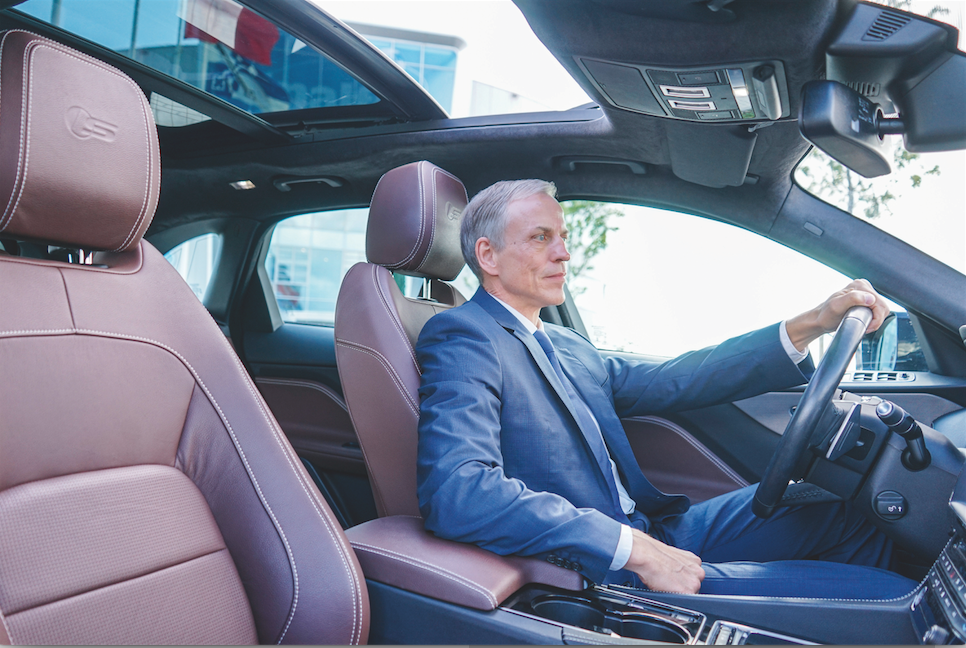
These employees all actively pursue the same objective of providing customers with the best possible product for their needs. “We operate like a successful soccer team, with individuals who attain their full strength through perfect teamwork, but who always have their key goals in front of their eyes,” Jörg says.
Innovation refers to continuously developing solutions that meet the changing demands of customers and remain useful even through times of crisis. The COVID-19 pandemic was a recent example of a crisis that has revealed to Inalfa which sunroof features will retain enduring importance in the future.
“We are in the process of coming up with a new generation of roofs, and changing behaviours as a result of COVID-19 have shown us what we need to prioritise,” Jörg explains.
“We see car companies accelerating their investments in electric and autonomous vehicle technologies, and we’re also seeing rising cost competitiveness. Therefore, we have begun developing roofs that are very cost-optimised. These roofs are lighter, they open wider and they are easy to integrate into new generations of cars.”
Jörg refers to this new generation of roofs as the “roof of the future”, which despite being cost-efficient must also possess enough advanced features to ensure that Inalfa remains the partner of choice for its many hundreds of loyal customers.
We operate like a successful soccer team, with individuals who attain their full strength through perfect teamwork, but who always have their key goals in front of their eyes.
“The roof of the future does not just open and close in the conventional way that you see today,” Jörg says. “It circulates and conditions air inside the car, and it contains 5G-integrated sensors for driver assistance. It contains solar cells to maximise vehicle range and it has comfort functions like intelligent lighting and even dimming. Eventually, we will see roofs that are integrated for entertainment. This is what our end clients are looking for, and it is what is driving innovation at Inalfa today.”
Fit for the future
The process of narrowing down Inalfa’s growth strategy and its unique role in the industry has been characterised by ups and down. In June 2017, Jörg was riding high on a slew of momentous achievements.
He had strengthened the company from the inside, hiring new experts and strong, inspiring managers to broaden the experience and knowledge level within the organisation as a whole.
These successes led Jörg to make a bold prediction. “I’m very confident that, as long as there is no general crisis, Inalfa will reach its goal of €2 billion turnover in 2020,” he said at the time. For nearly three years, Inalfa was on course to meeting its ambitious goal.
However, sure enough, the crisis eventually came and COVID-19 forced Jörg to recalibrate the company’s growth strategy. “We will certainly end up in 2020 below €2 billion and this is simply because the top line was not coming in as expected,” he reveals.
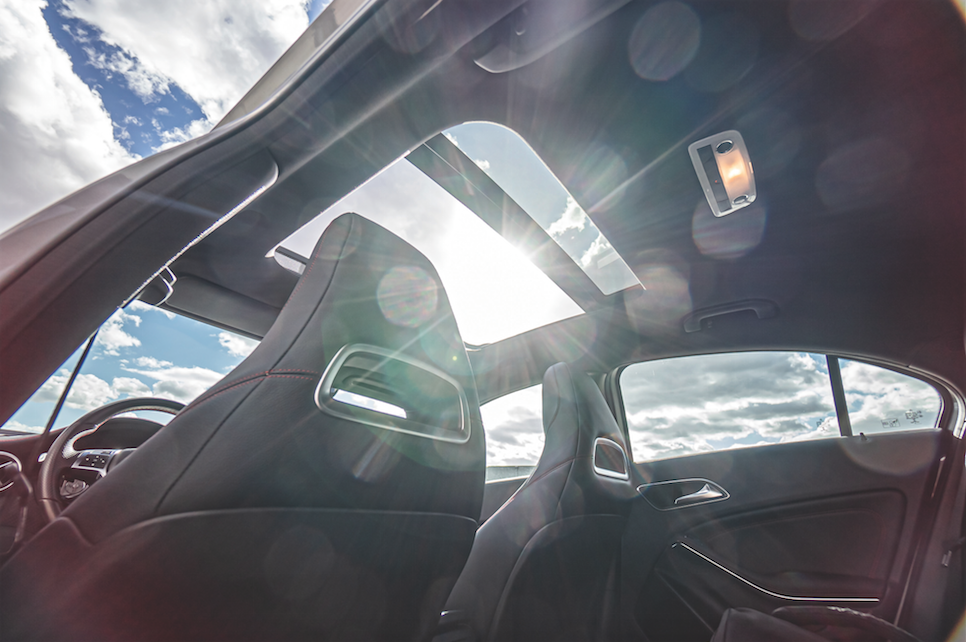
In fact, Inalfa’s sales dropped by more than 20% this year and according to the company’s projections, demand may not return to its pre-pandemic level until 2023. However, Jörg does not see this setback as cause for despair. Instead, it serves as the inspiration for how he will lead Inalfa over the coming years.
“We are really concentrating on getting our company fit for the future. This means we are investing in developing our talent and improving our management to ensure a fine-tuned organisation,” he says.

As a result, Inalfa has begun shifting its investments into the countries where its operations are most cost-effective, which is expected to compensate for slower growth elsewhere and make the company more competitive overall.
We are really concentrating on getting our company fit for the future.
“We are focused on our production capabilities and efficiency, and have done a good job of optimising our production lines to a higher level of efficiency in Europe,” Jörg says. “We’ve seen a significant change in our results through these activities and will certainly continue to optimise our footprint and increase profits in all regions.”
Delivering on promises
Turning its sights beyond Europe, Inalfa has reconfigured its growth plan to focus more on China, where the company has boosted its market share in recent years. Moreover, Jörg has led the consolidation of Inalfa’s factory in South Korea, restoring it to profitability and making it the preferred supplier of glass roofs to automotive giant Hyundai.
Global Production
Inalfa Roof Systems operates manufacturing facilities in the Netherlands, Slovakia, Poland, the US, Mexico, South Korea and China, and distributes to major automotive markets around the world. Each facility receives hardware and capital equipment from various strategic supply partners and assembles complete roof modules, each of which includes a structural frame, exterior panels, sealing systems, electronics, roller blinds, interior finishes and trim components. Every module is inspected before being packaged and shipped to the customer. Roof modules are installed into vehicles at the customer’s facility. Inalfa roof modules are designed to optimise space and minimise noise in order to improve the mobility experience. The company holds more than 700 life patents and a global market share of approximately 25%, delivering roof systems to almost every major car and truck manufacturer in the world.
“We have seen a big commitment from our Korean customers and we are on course to triple our revenue there,” he says. However, no business expands across the globe without landing in some rough spots.
In Inalfa’s case, a new American factory in Georgia has proven most challenging. “This factory is the biggest in our network, and it is still facing some very complex challenges in industrialisation. We’re currently looking into getting this company better structured and more productive,” Jörg says.
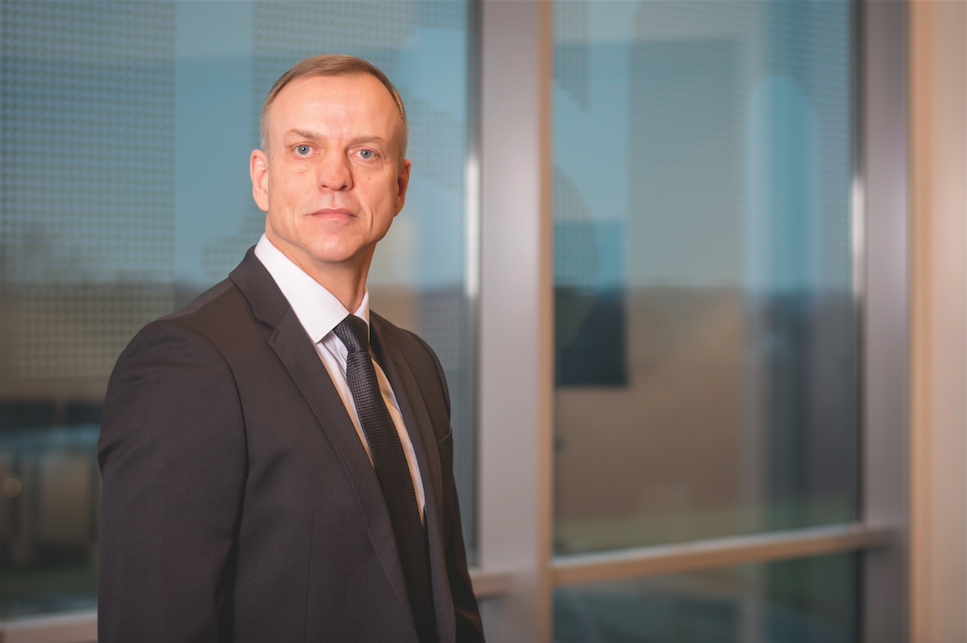
Nonetheless, the geographical diversity of Inalfa’s network ensures that a problem somewhere can be solved elsewhere. Even amid the pandemic, Inalfa has bucked conservative trends within the automotive industry by instituting workfrom-home provisions wherever feasible.
Communication between the company, its suppliers and its customers remains fast and reliable. “Nothing will deter us from delivering what we promise,” Jörg insists.
Focus on the right things
One consequence of the economic downturn precipitated by the COVID-19 pandemic has been the increasing pressure to prioritise where Inalfa is going to invest, and to pinpoint exactly where future demand from customers will lie in what is a rapidly evolving industry.
Nothing will deter us from delivering what we promise.
This is the current challenge for the entire sector, made all the more pertinent for Inalfa as it is in the process of developing and designing new products to meet the needs of the moment.
“We are adopting a road map that focuses on our major priorities. We need to prioritise products by becoming more efficient in recognising the end customer’s needs,” Jörg says of the company’s immediate focus.
“However, we cannot do everything we may wish to do. For example, we cannot try out all different kinds of potential features to the extent we did so before.
“We need to work with limited investment and limited resources in a very efficient way to get the right things on time on paper. This requires cutting the fat and becoming more efficient overall. The customer will see this reflected in our affordable prices. It’s important that we are using this situation as an opportunity to continue to raise our competitiveness.”

By keeping the company agile, Jörg is able to ensure that Inalfa maintains long-term relationships with both customers and suppliers.
“We involve our suppliers in the earliest stages of our innovations, integrating them into our concepts and finding ways of maximising our profits and competitiveness together,” he explains. Another important component to the company’s success is talent development, which Jörg refers to as “people performance management”.
“Our organisation can generate sustainability when people enjoy their work and are committed to delivering high-quality products in a speedy fashion,” he says. “It is the job of the management to provide this.”
Proudly supported by:
